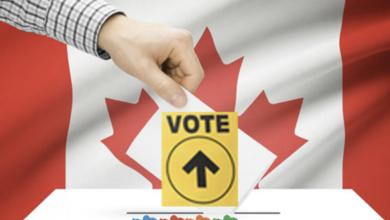Another $10 to fuel your car, taxpayer federation warns ahead of NS carbon tax start

HALIFAX, NS — A family fueling up for a holiday weekend drive will have to cut $10 off the ice cream budget, the Canadian Taxpayers Federation said Friday.
The federation held a press conference in Halifax the day before a federal carbon tax is introduced.
“The main example we use is that when it comes to refueling a minivan, the CO2 tax will add an extra $10 each time someone fills it up,” said Jay Goldberg, the federation’s Atlantic director.
Statistics released by the federal government in March that divided Canadian households into quintiles, or fifths, predicted that Nova Scotia households in the third, fourth and fifth income quintiles “will see a net loss, pay more in federal fuel tax and related GST than they receive in Climate Action Incentive Payments.”
But Ottawa says lower-income households experience lower net costs and greater net profits compared to higher-income households.
The taxpayers’ federation won’t accept that.
“The parliamentary budget officer has said that for the average Nova Scotia family, the carbon tax will cost $431 this year, and that will only increase in the coming years,” Goldberg said. “The government wants that kind of coverage, but first and foremost, families are paying more at the pump to fill up their minivans, their cars, and with the price of food and everything else going up with the carbon tax. And that will get people no matter where they are on the income spectrum, everyone needs to fill up their cars, everyone needs to get food on the table.”
Federation figures estimate that as of Saturday it will cost $16 more to fill a light pickup, $25 more to fill a super-duty diesel pickup and $174 more to fill a large drill.
“You look at price increases in an average year of shipping of thousands of dollars, and it’s just going to increase the cost of everything, which is what the carbon tax has done everywhere else,” Goldberg said. “The price of getting something from point A to point B has gone up, and of course all that cost is passed on to the consumer, which is what we can expect from July 1.”
Goldberg said the federal government should ask Nova Scotia for advice on how to deal with climate change rather than imposing a new tax.

“Nova Scotia has done very well; there is a story to tell. Emissions are down 36 percent from 1990 levels, and the goal is to get to 40 by 2030. The Houston government submitted a proposal that did not include a carbon tax, but which led the county to meet those climate goals. he said, noting that Nova Scotia is second only to New Brunswick in emissions reduction.
“British Columbia has had the highest carbon tax in the country for years, since 2008, and emissions have increased several times between then and now, and Nova Scotia has a better track record of reducing emissions than British Columbia. It is really a fiscal plan, not an environmental plan.”
At Dimitri’s Pizza in Halifax, owner Paul Chehade said Friday that the cost of doing business is rising in a number of different ways.
“Propane, I understand propane goes up 10 cents,” he said. “The fuel costs, the ovens and the fryers and the grill. For delivery, there will certainly be a cost of giving the driver a little bit more to compensate her for her gas bill.
Chedade gets things like flour and tomatoes from his supplier once a week, and that bill goes up too.
“Because they’re obviously trying to cover their costs. We’ve been waiting to… raise our prices, but we’re starting to feel it.”
In a lineup at a Sydney gas station this week, senior Heather Clarke said the imposition of the carbon tax is a scary prospect.
“Everything is going up. Pensions aren’t going up fast enough,” Clarke said, adding that she can’t cut back on essentials like food, heating and light.
Clarke said she should pay attention to her car trips that aren’t essential, such as health appointments. And that’s a pity.
‘It’s a terrible thing. Life is short. The Sunday ride will be passé,” she said. “It will be gone.”
With Barbara Sweet





